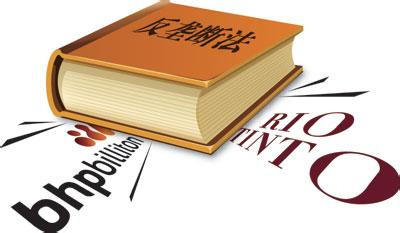(单词翻译:单击)
The alleged anti-foreigner bias of China’s National Development and Reform Commission, which enforces pricing provisions of the 2008 Anti Monopoly Law, has become an increasingly common complaint among multinational executives working in the country.
中国国家发改委(NDRC)是执行2008年《反垄断法》定价行为条款的机构。发改委据称重点针对外企的做法,已成为在华工作的跨国企业高管们越来越一致的抱怨。
The grumbles began last year when the NDRC fined six baby formula makers, five of them foreign, for illegal pricing practices. They grew more audible during an investigation this summer into carmakers, and reached a crescendo in September when overseas chambers of commerce released their annual assessments of business conditions in the world’s second-largest economy.

去年,发改委因6家婴儿配方奶粉企业(其中5家为外企)的非法定价行为,对其处以罚款,由此引发抱怨。今年夏季,发改委对汽车制造商发起调查时,抱怨声更大了。9月份,当多家外国商会发布针对全球第二大经济体的年度营商环境评估报告时,抱怨之声达到了顶点。
While the penalties assessed to date by the NDRC seem to confirm the suspicions of its critics, a closer look at the NDRC’s enforcement actions reveals a more complicated picture. Multinationals are easy targets in a country where nationalistic instincts run deep. But some of the regulators’ more famous targets appear to have wandered into its sights by accident. Others were ratted out by other multinationals. And in one of the cases, at least five large global car manufacturers appear to owe the NDRC a thank-you note for targeting suppliers who admitted to cheating them for more than a decade.
尽管发改委迄今做出的处罚似乎证实了批评人士的怀疑,但更仔细地观察发改委的执法行动,让我们看到了一幅更复杂的图景。在中国这样一个民族主义本能根深蒂固的国家,跨国企业很容易成为靶子。但在监管机构的靶子中,有些比较著名的企业似乎无意中进入了发改委的视野。也有些是被其他跨国企业揭发出来的。在其中一起案例中,起码5家大型全球汽车制造商似乎应该给发改委写一封感谢信,因为后者盯上了一些供应商,这些供应商承认在10多年里一直欺骗这些汽车制造商。
Multinational executives and competition lawyers who believe the NDRC is deliberately targeting overseas groups point to an expansion in the number of investigations and the amount of fines paid by foreign investors compared to domestic companies. In a critical report of Chinese competition enforcement released last month, the US-China Business Council noted that the NDRC launched just 20 pricing investigations from 2008-12, compared with 80 in 2013 alone. The NDRC’s recent targets range from luxury carmaker Audi to Qualcomm, the US chipmaker.
认为发改委刻意针对外企的跨国企业高管和反垄断律师指出,受调查的外企数量有所增加,外国投资者与国内企业相比被判罚的金额也在增加。美中贸易全国委员会(USCBC)上月发布一份批评中国反垄断执法的报告,提到2008年至2012年期间,发改委只发起了20次定价行为调查,相比之下,仅仅2013年的定价调查就有80起。发改委近来的调查目标非常多,从豪车制造商奥迪(Audi)到美国芯片生产商高通(Qualcomm)。
According to data compiled by the Financial Times, foreign companies or their joint ventures have paid almost 80 per cent of the Rmb3bn ($490m) in anti-monopoly penalties handed down by the NDRC since 2011. From there, the circumstantial case against the NDRC becomes less clear-cut. Of the Rmb2.4bn in fines handed down to foreign companies, half of this amount was assessed against 10 Japanese auto parts makers who admitted in August to colluding to set prices between January 2000 and June 2011. The cartel’s victims included Ford, Honda, Nissan, Suzuki and Toyota.
根据英国《金融时报》汇编的数据,自从2011年以来,发改委做出的反垄断处罚金额已达30亿元人民币(合4.90亿美元),其中外企或其合资企业所占比例接近80%。但深入分析发现,批评发改委的推定理由就不那么清晰了。对外企开出的24亿元人民币罚单中,有一半是针对10家日本汽车零部件制造商的——这些公司今年8月承认,他们在2000年1月至2011年6月期间串通设定价格。这一卡特尔的受害者包括福特(Ford)、本田(Honda)、日产(Nissan)、五十铃(Suzuki)和丰田(Toyota)。
The NDRC argues that it is too overwhelmed with its workload to organise a conspiracy against foreign companies. Compared to its US and European peers, the regulator’s price supervision and anti monopoly bureau is inexperienced and understaffed, although it has been beefing up manpower. To address these weaknesses, the NDRC has adopted two rational strategies. First, it copies earlier US and European successes: if a foreign company has been busted by Washington or Brussels for monopoly behaviour over the past decade, chances are the NDRC or the State Administration for Industry and Commerce, which polices other aspects of China’s Anti Monopoly Law, are looking at it too. In the Japanese automotive component case, Beijing was following a trail blazed by US and EU regulators.
发改委辩称,其忙于履行职责,根本没时间组织一场针对外企的阴谋行动。与美欧同行相比,发改委下属价格监督检查与反垄断局的经验缺乏,人员不足,尽管该局一直在增加人手。为了克服这些弱点,发改委采取了两项理性的策略。第一,它复制了美欧监管机构先前取得的成功:如果一家外企在过去10年里因垄断行为受到过华盛顿或布鲁塞尔方面的处罚,那么发改委或国家工商行政管理总局(State Administration for Industry and Commerce)目前可能也在调查它。国家工商总局负责执行中国反垄断法的其他方面。在日本汽车零部件企业受调查案中,北京方面就是在追随美欧监管机构开辟出的道路。
The second strategy has been to encourage companies to come forward and admit wrongdoing, as it takes much less time to hear a confession than it does to investigate a case. Again in the Japanese case, the NDRC said Hitachi Ltd and Nachi-Fujikoshi Corp were spared punishment on the grounds that they had voluntarily reported the cartel activity and provided other “important evidence”. As one example of t he NDRC’s often accidental approach to investigations, the head of its anti monopoly bureau said an Rmb249m fine handed down on one of Audi’s China joint ventures last month stemmed from a car accident involving an Audi sedan and a taxi. The Audi driver complained to Chinese authorities after noticing a large discrepancy in repair appraisals for his vehicle.
第二个策略,是鼓励企业主动交代,承认自己的过错,因为相比调查一个案子,听取招供省时得多。同样是在对日企的调查中,发改委表示对日立(Hitachi Ltd)和不二越(Nachi-Fujikoshi)免于处罚,因为这两家公司主动报告了卡特尔活动,并提供了其他“重要证据”。突显发改委往往因偶然事件展开调查的是,价格监督检查与反垄断局局长表示,上月奥迪在华合资企业之一被罚款2.49亿元人民币,源于一辆出租车与一辆奥迪轿车发生的剐蹭事故。奥迪司机在发现保险公司对其车辆的定损额和4S店维修价之间存在较大差距后,向中国当局提出了投诉。
Multinational executives complain that the NDRC frequently bullies them during the investigation process, barring their lawyers from meetings and pressing them to confess wrongdoing. Such tactics will come as no surprise to people familiar with the workings of China’s justice system generally. In this respect at least, Chinese authorities do seem to be treating foreign and local suspects equally.
跨国公司高管抱怨称,发改委在调查过程中经常恐吓他们,不让他们的律师参加会议,强迫他们承认自己有过错。熟悉整个中国司法系统运转的人不会对此等手段感到惊讶。至少在这一方面,中国当局看来对外国和本国嫌疑人是平等对待的。


